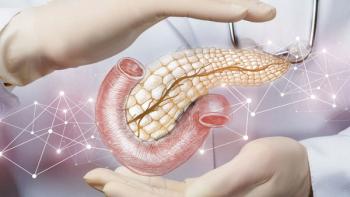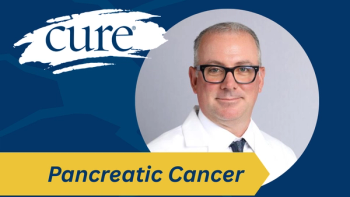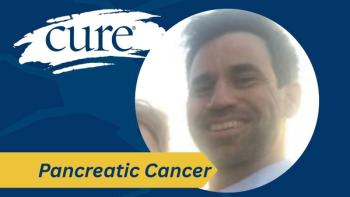
Stage 4 Pancreatic Cancer
There are few words in my mind that evoke more fear than pancreatic cancer. Even those with limited knowledge of the disease know that it
There are few words in my mind that evoke more fear than
What causes pancreatic cancer?
In very basic terms, pancreatic cancer is caused by either inherited gene mutations or acquired gene mutations.
Inherited gene mutations are those that we get from our mom and dad – things that we have no control over. We often hear about the BRCA gene mutations that are responsible for many breast and ovarian cancers; however, did you know that mutations within BRCA1 and BRCA2 can also put a person at a higher risk for pancreatic cancer? That’s because these are known as tumor suppressor genes. When they work correctly, they help our bodies identify and kill tumors. When they aren’t working right, these cancers can grow unchecked. Other genes that are linked to familial melanomas and familial pancreatitis, as well as Lynch Syndrome and Peutz-Jeghers Syndrome, have been linked to increased risks for pancreatic cancers. Other factors that we have no control over are our sex (men are more likely than women to develop pancreatic cancer), age (those between 45 and 65 years of age are in the most likely age group), and race – African Americans are more likely to develop pancreatic cancer.
Acquired gene mutations, on the other hand, are those that happen to us after we are born by exposure to certain chemicals, materials, or conditions. Smoking is a biggie. Cigarette smoking doubles – yes – doubles a person’s risk for developing pancreatic cancer. Other important factors include exposure to certain chemicals, as well as being overweight and type II diabetes, which often goes hand in hand.
Some new research has revealed another possible cause of pancreatic cancer – a fungal invasion of the pancreas. We’ll go more in-depth on that in a few minutes.
What are the symptoms of stage 4 pancreatic cancer?
One of the things that make this cancer such a killer is that it is silent early on. The symptoms of pancreatic cancer often don’t show up until it has spread beyond the pancreas, making treatment incredibly difficult. So, once symptoms develop, a patient is likely in stage 3 or 4. Symptoms of late-stage pancreatic cancer include jaundice, dark urine, light-colored/greasy stools, itchy skin, backaches, belly pain or nausea,
What is important to remember here is that having one or more of these symptoms does not mean you have pancreatic cancer. It could very well be any one of numerous other conditions causing these symptoms. However, if you do have these symptoms, and especially in combination with other risk factors discussed above, you should definitely get in to see your doctor for a check-up soon. Let’s be honest though – none of these symptoms are good things – so, have to go have that check-up.
What is the prognosis for stage 4 pancreatic cancer?
When we talk about five-year survival rates for various cancers, it’s very important to remember that these are estimates, and a lot of factors come to play in determining an individual’s specific prognosis. Also of note is that these rates reflect patients that were diagnosed at least five years ago, so these don’t always include the latest treatments or research. That being said, stage 4 pancreatic cancer has one of the lowest survival rates of any cancer – only 3% of patients diagnosed will survive for five years.
Current research into pancreatic cancer
After all of that, I really want to leave you with some good news – and there is good news to be had!
Remember when I told you that researchers have identified fungal invasion of the pancreas as a possible cause of pancreatic cancer? So here’s the science stuff. Doctors have known for a long time that bacteria from the intestines can travel up the pancreatic duct and into the pancreas (in the opposite direction of normal flow), so they wanted to see if different fungi could do the same. In their studies, researchers at the
But wait – there is more good news! Researchers at
As always, much love, many prayers, and abundant blessings to all of the warriors out there!!




